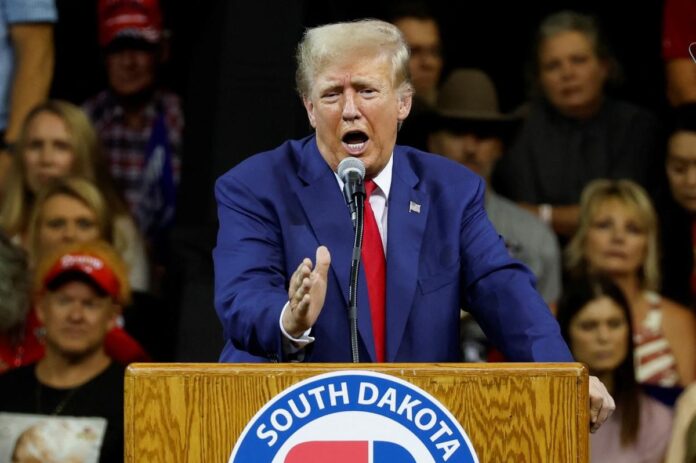Donald Trump’s legal team has requested the recusal of U.S. District Judge Tanya Chutkan, who is presiding over his election subversion case in Washington. They argue that her past public statements about the former president and his connection to the January 6, 2021, Capitol riot raise doubts about her impartiality.
Judge Chutkan, nominated to the bench by President Barack Obama, is known for her tough stance on the January 6 defendants. However, the chances of her recusing herself are considered low, as the decision rests with her.
This move adds to the existing tensions between Trump’s defence team and Judge Chutkan, who has cautioned against inflammatory remarks from Trump but has faced criticism from him on social media. The defence also expressed concerns that Trump’s statements branding her as “highly partisan” could influence potential jurors.
Chutkan scheduled the trial for March 4, 2024, despite objections from defence lawyers who argued for more preparation time. Trump faces a four-count indictment in Washington, accusing him of plotting to overturn the 2020 election results. This is one of four criminal cases he is facing while seeking reelection.
This isn’t the first time Trump has sought to remove a judge from a case; he previously tried unsuccessfully to have Judge Juan Manuel Merchan removed from a hush-money case in New York state court.
Federal judges are expected to recuse themselves when their impartiality is reasonably questioned, and Trump’s legal team argues that Chutkan’s prior statements indicate a preconceived opinion of Trump’s guilt.
Chutkan has issued harsher sentences than Justice Department prosecutors recommended in some January 6 cases and also ruled against Trump in a separate January 6 case regarding the release of documents to the U.S. House’s January 6 committee.
Trump’s lawyers quoted Chutkan’s statements from sentencing hearings for other January 6 defendants, suggesting that she believed Trump should be charged, raising concerns about her impartiality in this high-profile case.

















